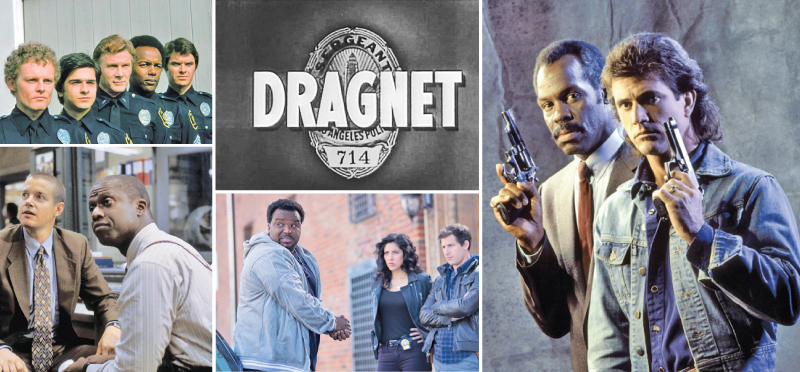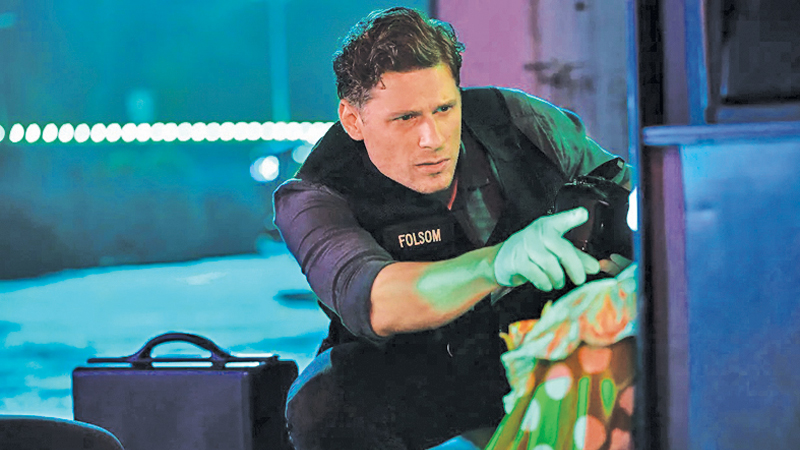 Cop shows are a subgenre of detective fiction and crime fiction but focus more on the dramatic and idealised depictions of police work. This genre of show has been a staple of TV for decades and typically follows the daily lives of cops, detectives, forensics, or even entire law enforcement agencies as the protagonists, attempting to shine a spotlight on the real-life procedures of how law enforcement operates.
Cop shows are a subgenre of detective fiction and crime fiction but focus more on the dramatic and idealised depictions of police work. This genre of show has been a staple of TV for decades and typically follows the daily lives of cops, detectives, forensics, or even entire law enforcement agencies as the protagonists, attempting to shine a spotlight on the real-life procedures of how law enforcement operates.
How accurate it is varies greatly from show to show and, in some cases, can even veer into propagandistic territory. The genre has evolved over the years, reflecting shifts in societal attitudes toward crime, law enforcement, and the justice system.
Prior to the advent of film and television, crime novels were some of the most popular media among the public. The origins of crime dramas can be traced back to early detective novels such as those of Arthur Conan Doyle’s Sherlock Holmes and Agatha Christie’s Hercule Poirot. Although these stories did not depict the police themselves particularly favourably, they sparked interest in methodical investigations, unravelling mysteries and solving crimes through evidence, logic, and deduction.
As the genre transitioned to radio, cinema, and later television, crime dramas began to take on more diverse forms, with detective figures often serving as the central focus of the narrative.
‘Dragnet’
One of the earliest and most influential cop shows was ‘Dragnet,’ which aired in the 1950s. Dragnet presented a no-nonsense portrayal of police work, focusing on the procedural aspects of law enforcement. The show’s creator, Jack Webb had contact with the LA Police Department and worked with them directly in order to get the most authentic look at the police, to a degree that had not been matched by that point and has only rarely been done since.
However, this agreement with the LAPD worked both ways, and the Police Department had the final say on how they were depicted on the show, cutting out elements that might present them in a less than positive light regardless of the truth. This format established the blueprint for many future cop shows.
As the genre progressed, cop shows began to incorporate more complicated characters and storylines. Shows like Hill Street Blues and NYPD Blue in the 1980s and 1990s delved into the personal lives of the officers, revealing the emotional toll that law enforcement work can take. These shows portrayed police officers as flawed individuals struggling with issues like alcoholism, relationships, and corruption, which made them more relatable and humanized in the eyes of the audience.
This was around the time when the Buddy Cop genre would become widely popular, with films like Lethal Weapon (1987) and Tango & Cash (1989). And though this shift focused more on the characters, with less importance placed on police procedure, it also further glorified law enforcement, with tropes like the Cowboy Cop showing less nuance in favor of entertainment.
More realistic
In the 2000s, shows such as ‘The Wire’ and ‘Law & Order’ took a more realistic and gritty approach to the genre. ‘The Wire’, in particular, was praised for its in-depth exploration of the systemic issues within law enforcement, politics, and society at large. It showed how crime, policing, and urban decay are interwoven, with no easy solutions to the problems at hand.
On the other side of TV, the vast majority would lean more into entertainment, with shows such as ‘The Mentalist’ (2008), ‘Monk’ (2002), and ‘Numb3rs’ (2005) being just cop shows with a unique twist to each of them in order to stand out. Or, like ‘CSI: Crime Scene Investigation’ (2000) and its multitude of spinoffs, which relied on a strong ensemble cast put in increasingly wild scenarios and crimes.
The 2010s saw the rise of more diverse cop shows, with programs like Brooklyn Nine-Nine blending comedy with the traditional elements of police procedurals. Brooklyn Nine-Nine offered a more lighthearted take on the genre while still addressing serious topics such as racial profiling, police brutality, and LGBTQ+ issues. Its success demonstrated that cop shows could evolve to include more humour and inclusivity while maintaining the core elements that made the genre popular.
However, recent years have seen a shift in the public perception of cop shows. In the wake of increased awareness of police brutality and systemic racism, there has been growing criticism that traditional cop shows often portray law enforcement in an overly positive light, ignoring or downplaying the issues within policing institutions.
As a result, some shows have been reevaluated, retooled, or even canceled. There are fewer police shows than ever, with many shows such as even the long-running Cops (1989) being canceled, at least until they’ve been retooled for syndication. Producers and writers are increasingly mindful of how law enforcement is depicted on screen, leading to a new wave of cop shows that attempt to offer more balanced and socially conscious portrayals of police work.










